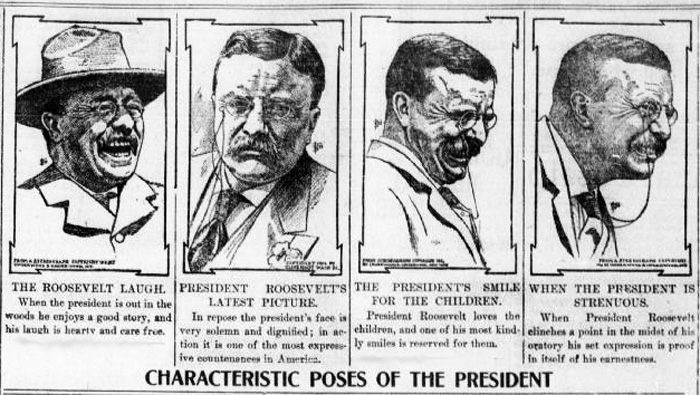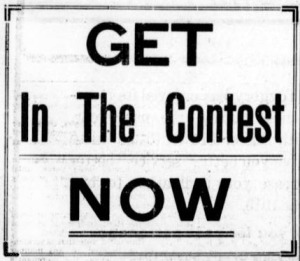As part of the Library of Congress’ and National Endowment for the Humanities’ National Digital Newspaper Program (NDNP), the ODNP is pleased to announce that Chronicling America, the NDNP’s online collection of searchable, historic newspapers from across the United States, has reached a total of 5 million newspaper pages! Chronicling America currently hosts content from 16 of Oregon’s historic newspaper titles, which can also be found on our Historic Oregon Newspapers website.
The following announcement from the Library of Congress and the National Endowment for the Humanities was released yesterday:
October 22, 2012
Chronicling America Posts 5 Millionth Page
Popular Online Resource Provides Access to Nation’s Historic Newspapers
The Chronicling America website, chroniclingamerica.loc.gov, a free, searchable database of historic U.S. newspapers, has posted its 5 millionth page.
Launched by the Library of Congress and the National Endowment for the Humanities (NEH) in 2007, Chronicling America provides enhanced and permanent access to historically significant newspapers published in the United States between 1836 and 1922. It is a part of the National Digital Newspaper Program (NDNP), a joint effort between the two agencies and 32 state partners.
“This magnificent resource captures the warp and weft of life as it was lived in grassroots America,” said NEH Chairman Jim Leach. “Metropolitan newspapers were early targets for digitization, but Chronicling America allows the journalism of the smaller cities and the rural countryside to become accessible in all its variety—and sometimes, quirkiness.”
“Chronicling America is one of the great historical reference services on the web,” said Roberta Shaffer, associate librarian for Library Services at the Library of Congress. “It is a treasure trove of information about communities, personalities, key events and culture in the United States, and it is all free and available to the public.”
The site now features 5 million pages from more than 800 newspapers from 25 states. The site averaged more than 2.5 million page views per month last year and is being used by students, researchers, congressional staff, journalists and others for all kinds of projects, from daily podcasts to history contests. The news, narratives and entertainment encapsulated in the papers transport readers in time.

Historic Oregon Newspapers: http://tinyurl.com/8dtr3s9
For instance, on this day, Oct. 22, 100 years ago, there was a lot of news about Theodore Roosevelt recovering from an assassination attempt several days earlier. A Washington Times headline said “Roosevelt Home Swinging His Hat with Happiness, Finishes Tedious Trip to Oyster Bay in Good Shape.” A crime story in the New York Tribune read, “Girl Runs Down Thief, Pajama-Clad Coed Races over Campus to Save Violin.” International news focused on the First Balkan War. “20,000 Turks Reported Taken by Bulgarians,” according to a story in The Washington Herald.
In 2003, the Library and NEH established a formal agreement that identified goals for the program, institutional responsibilities and overall support. In 2004, the NEH announced guidelines for grants, funded by NEH, awarded to cultural-heritage institutions wishing to join the program and select, digitize and deliver to the Library approximately 100,000 newspaper pages per award. Since 2005, the NEH has awarded more than $22 million to 32 state libraries, historical societies and universities representing states in the national program.
Created in 1965 as an independent federal agency, the National Endowment for the Humanities supports research and learning in history, literature, philosophy and other areas of the humanities by funding selected, peer-reviewed proposals from around the nation. Additional information about NEH and its grant programs is available at www.neh.gov.
The Library of Congress, the nation’s oldest federal cultural institution, is the world’s preeminent reservoir of knowledge, providing unparalleled collections and integrated resources to Congress and the American people. Many of the Library’s rich resources and treasures may also be accessed through the Library’s website, www.loc.gov.






